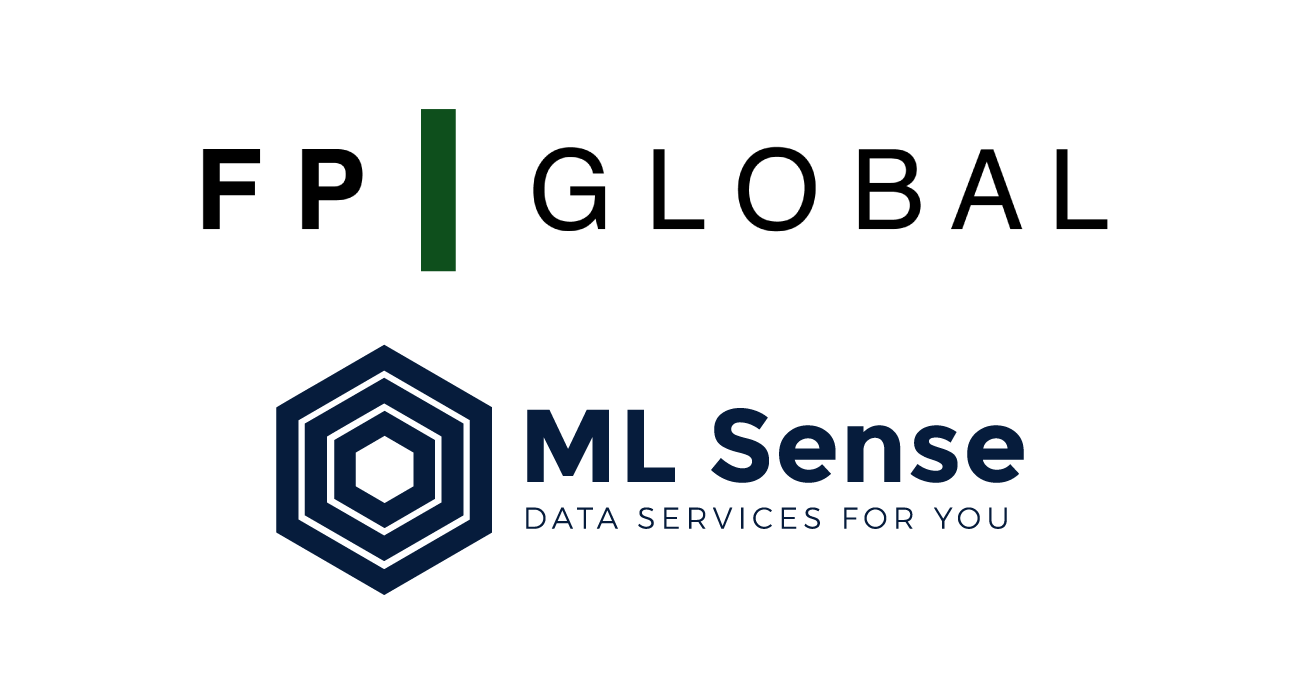Latest Insights
June 13, 2019
OVERVIEW
In this exclusive interview, hear first-hand from Blair Pickerell, chief executive with 30+ years of work experience in Asia. He is the Ex CEO of several significant investment management firms, managing 70,000 + staff across 20+ countries in dozens of industries. A fluent Chinese speaker, he is currently semi-retired and serving on the boards of several listed companies as an independent director. Find out perspectives on management, trends and challenges within the funds industry, and what it takes to thrive and stand out:
1. What’s a day in your life right now?
In general, my time is split among the following:
- Work: meetings of various boards and advisory groups
- Leisure: working in the garden, reading, hiking, travel, golf, and meals with friends.
- Helping: assisting a few educational institutions and mentoring a few young executives in the industry.
For the board work, large listed companies set their board dates 1-3 years in advance, so it is easy for me to know when I will have free time far in advance. This makes it easier for me to plan pleasure trips and appointments with friends and mentees. These official meetings tend to come in waves, so there are weeks when I can be quite busy with several board or committee meetings and other weeks when I have no commitments at all.
Hong Kong is definitely a great place to live for that balance — a bustling business centre where one can keep in touch with the financial world while also being a great place to live a relaxed life with good food, good transportation, and many lovely country parks. It is a great place to be semi-retired.
2. After being in the funds industry for 30+ years, looking back, was this the trajectory you expected it to head towards?
Honestly, I had no real expectations. Back then, my focus was just on doing whatever job I had. We just wanted to hire and train good staff, provide excellent service, introduce funds to the growing middle classes of Taiwan and Hong Kong, and to be the clear leader of the industry we were helping to create.
If I go back to 1985 and reflect on what subsequently occurred, never in my wildest dreams did I foresee that the Asian funds industry would as big as it is right now. Back then, there were just a fairly small number of mutual funds in Hong Kong, sold predominantly to the expatriate community. As for Taiwan and China . . . well, there were none. Indeed, in those days, if you were working in Taiwan, you could not even step foot in China, and both places did not allow foreign investors to buy local equities.
I was involved in an advisory role in the launch of the first open-ended mutual fund in China, but we clearly never dreamed that today there would be something like 30, 000 funds in the PRC. At one point, two decades ago, there was a period when Jardine Fleming (with 65% market share in Hong Kong and the leader in Taiwan) processed more fund transactions per day in Hong Kong than Fidelity was doing in all of Europe. So it was clear that this was a product with potential. But the growth of the industry in markets like China, Taiwan, India, and Malaysia has been much more than I would have dreamed.
It has definitely been fulfilling seeing how it has progressed over the years!
3. Would you do anything differently?
There are some days when I feel that we have accomplished a great deal. As a result of our efforts, many people in many countries have invested in funds for the first time, thousands of jobs have been created, and many industry leaders have been developed. The teams I worked with helped build a major industry in numerous markets and introduced many innovations to the industry. On such days, I feel that I can retire knowing that I have made a small difference in the world.
On other days, however, I look at the past 30 years and feel that we have done a pretty poor job. The fact is that most people in Asia do not have a proper investment portfolio. There is a strong tendency towards speculation, and our industry has not done enough to slow this tendency. The result is that most investors in Asia have a very unbalanced portfolio, with a heavy weighting towards “sexy” countries and industries and a poor overall asset allocation. Many people have purchased just one or two funds—usually those pushed by banks and brokers—then held them for a fairly short period of time. In general, our clients have not been good investors.
For example, US equities is actually very lacking in most portfolios even though the US stock market accounts for roughly 40% of the world’s market cap and has shown good returns for decades. Asian investors have viewed the US as “the economy of the past” while being all too willing to buy funds investing in whatever Asia market is hot today. I remember there was one period when Hong Kong investors invested more in Vietnam funds in a couple of months than they had invested in US equity funds in a couple of decades. That simply makes no sense.
In Asia, we should instead be focusing on making sure that the middle class ends up with a balanced portfolio that is sustainable in the long-term — one that can fund our retirements in the future or our children’s university bills in 10-15 years
.
4. Do you foresee this as a growing problem? What is the reason for this? How do you think this can be overcome?
I often use the analogy of going to the supermarket.
For example, I like beef, so I put it in my shopping basket. And I like chicken, cake, and ice cream, so I put it in the basket. Whenever I see something I like, I put it in the basket and I proceed to buy it. I then go home and then my wife says to me, “How do you expect me to make meals out of these? There is no rice, no vegetables, no fruit, no noodles, and no soya sauce! “ We won’t starve, but it is certainly not a balanced diet.
Sadly, that’s how many investors behave— “if it looks good, I’ll buy it.” Far too few people are thinking about putting together logical, balanced portfolios that solve a larger problem. This tendency is driven by both the fund distributors and the clients’ own tendencies, but the fund management industry has done too little to educate investors as to what a proper portfolio looks like.
For example, sales of China funds, Southeast Asian funds, and Vietnam funds have been very robust. On the flipside, if you ask how many people have meaningful exposure to US or European equities or global bonds—the three biggest asset classes globally—you would be surprised how few people have any of these in their “portfolios.” The answer is more client education, but it has not really happened yet.
5. What is the most challenging things you feel the industry is facing today?
Client education.
I often hear people say, “I’m not greedy. I just want a steady 7 – 10% return with no risk”. If you want no risk, then you should purchase a government bond at 2.5%! Educating investors to understand risk versus reward, long-term versus short-term, and how to build a logical portfolio is a major challenge facing the industry.
Another challenge is that the cost of the distribution is very high. Funds that are promoted by sales people get the attention, but they also come with higher fees. On the other hand, funds with low fees tend not to get promoted. The lack of a no-load fund industry in much of Asia is also very telling!
There is a trade-off between building distribution and the increased cost of the product. ETFs generally come with a very low fee, but then there is no sales machine out promoting these products. On the other extreme, you have funds promoted by some insurance companies and advisors which carry extremely high fees, but they are heavily promoted. The trade-off between distribution and cost is always a challenging one.
6. What is one value that you have upheld in all your years in senior management?
Teamwork. I always like to emphasize that we are one team. Having a corporate culture which emphasizes cooperation is very important. I have very little time for office politicians. We should all work together to build our industry and build our firm.
In building good teams, I think it is important that we try to avoid those individuals who are very keen to make a lot of money in a short period of time. My answer would be “go become an investment banker or stock broker.” Our industry is quite different; one which I would call “long term greedy.” We tend to prefer employees who don’t worry too much about this year’s pay or bonus but know that if we as a team build strong shareholder value over the long-term then they will be well compensated longer-term. This is perhaps a different mindset than in certain other corners of the financial services industry. As I like to say, “If people come for money, they leave for money.” It is better to attract people with the opportunity to learn and grow and be part of a winning team then simply what this year’s bonus will be.
7. Do you tend to hire senior management from within?
I much prefer to develop our own talent internally. Of course, one needs to occasionally bring in talent from outside when one doesn’t have the right people available—especially for certain specialist positions. But in general, it is much better to develop talent internally. This is more likely to result in good morale and cooperation since everyone grew up in the same corporate culture.
One headhunter told me that over 20 CEOs in the industry in Asia used to work for me, which made me quite proud. It means that we were hiring and developing the right people.
And when you hire from outside, I believe you should be very careful in making sure the person will be a good match. I was surprised how often people were willing to hire a person they met just once or twice. I like to say that employment should be like a marriage: it might not last for life, but at least when you enter it, you HOPE it will last for life. For instance, would you marry someone on Thursday that you met on Tuesday? But we are often all-too-willing to hire people we don’t know very well or who are not really a good fit, usually because we feel we are under pressure to fill a vacancy quickly. While this often solves a short-term problem, it can also create longer term problems.
You are going to spend most of your awake hours in the office; it is important that you are working with people you like and who are competent and cooperative. From what I have seen, hiring lots of people after a fairly quick interview process and them firing many of them because they don’t work out does not lead to a good corporate culture.
8. Any other major challenges that you see?
The ever-increasing regulatory environment.
For this industry to thrive, you of course need a fair number of regulations, but the level of regulation is becoming excessive, in my view. It is getting harder and harder for individuals to buy funds given the need to understand their source of wealth, make sure they are not taking undue risk, ensure they are not terrorists or corrupt officials, etc. While well intentioned, the actual implementation of many of these regulations has created quite a bureaucracy which makes it harder and harder for clients to buy funds. I have heard stories of several highly experienced senior business executives who were told they could not buy certain funds because they had had no experience in buying derivatives, etc. (and so couldn’t buy emerging markets funds as they are “high risk”) or were over 65 years of age.
You cannot have a sales process where highly-experienced businesspeople who know what they want have to spend an hour or so answering questionnaires, often on a recorded line. I sometimes comment that in certain jurisdictions, it is easier to get married than it is to buy a fund.
Regulators determined to protect the investor, and that is a noble cause. That said, imagine if you went to a restaurant and just wanted to order a hamburger or milkshake. But in order to do so, the waiter is required to ask you a long series of questions before taking your order. How much sugar do you digest in the typical week? How many vegetable and fruits do you consume each month? How many hamburgers have you had in the past week? Can you tell us about your parents’ health history? I’m quite sure you would get exasperated as a customer very soon, especially if you have a very good idea of what you feel like eating today.
9. Would you say academic qualifications or technical skills are as important now as they were in the past? Can some of the skills be learnt on the job?
Both are important. Academic brilliance is not enough to do well in this industry; one must have practical experience and skills to deal with the many operational needs one faces. At the same time, the industry is becoming more and more specialized, and one must have a solid understanding of finance and investment to be effective in many roles.
As the industry grows, it also becomes more and more specialized, especially in certain types of fund management or in compliance, risk management, operations, HR, IT, etc.
At the same time, it is worth remembering that we are a consumer product, and so our branding and marketing ability should be as good as a firm like P&G. Just having a few senior fund managers sitting around the table deciding what advertisements to run won’t cut it in today’s world. But we should also remember that this is not a terribly complicated product—after all, your mother is supposed to understand what a mutual fund is. And it isn’t that hard to manufacture one.
On the institutional side, however, the clients are becoming more and more specialized, and the days of the hail-fellow-well-met salesman are over. Clients expect to meet with account officers who have a solid understanding of the products, of the investment process, of risk management, and of operational processes. In that sense, the industry is attracting ever more capable people.
10. What are your thoughts about the future of funds industry in Asia?
We are definitely in the right part of the world. After all, the investment management industry is all about managing wealth, and nowhere in the world is wealth being created at a faster pace. That is true for governments, financial institutions, pension funds, high net worth individuals, and individual middle class investors. So the macro outlook looks very favorable.
Furthermore, this is the right time. Some 25 years ago there was much less wealth to manage than today, and 25 years from now the industry will be much more mature and the winners and losers probably already decided. This should prove to be the high growth period.
Of course, there are many challenges as well: the overall performance of the markets, investor education, hiring and retaining good staff, increased regulation, ever-increasing costs, and tougher foreign exchange controls in some markets. Also, the entire industry globally is finding it difficult to outperform benchmarks and indices.
But overall, there is still huge potential in this part of the world as more and more people join the middle classes and as the investment management industry grows in exciting new markets.
11. As a semi-retiree, what is important to you now?
Health, family and friends. When I speak with others of a similar age and situation, we almost always agree that these are the three things that matter at this stage in life. When you are in your twenties and thirties, you have to go out there, hustle, and work hard. However, once you’ve reached a point that you’ve had good jobs, saved good money, and are in the last third of your life, health, family and friends become the big priorities in life.
Share This Article
Articles You May Like















